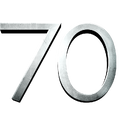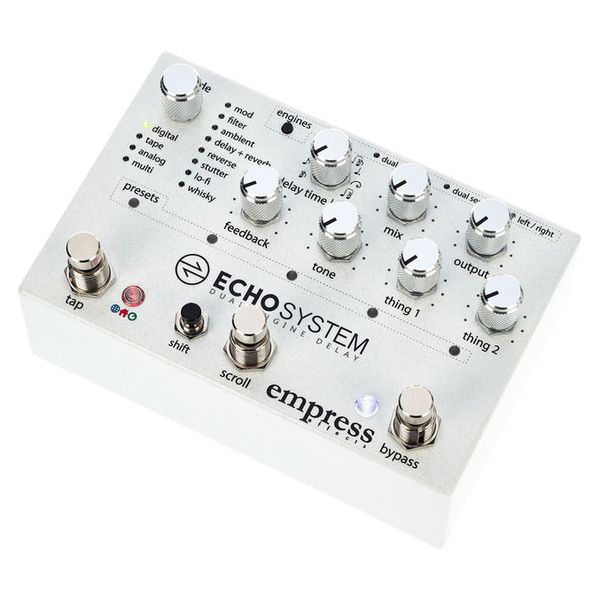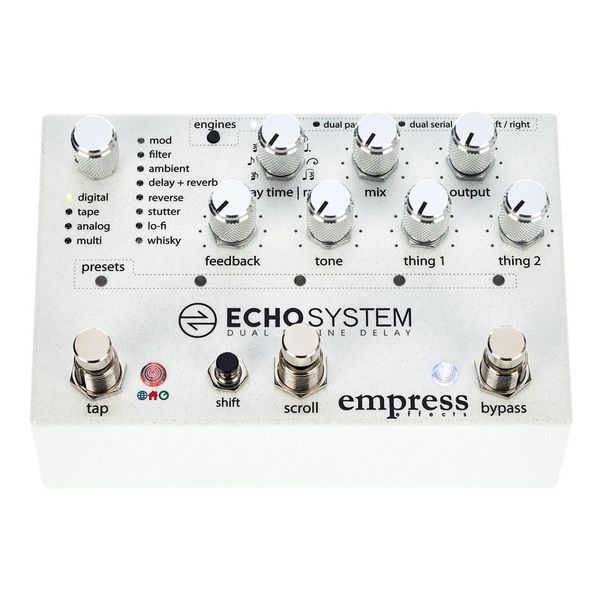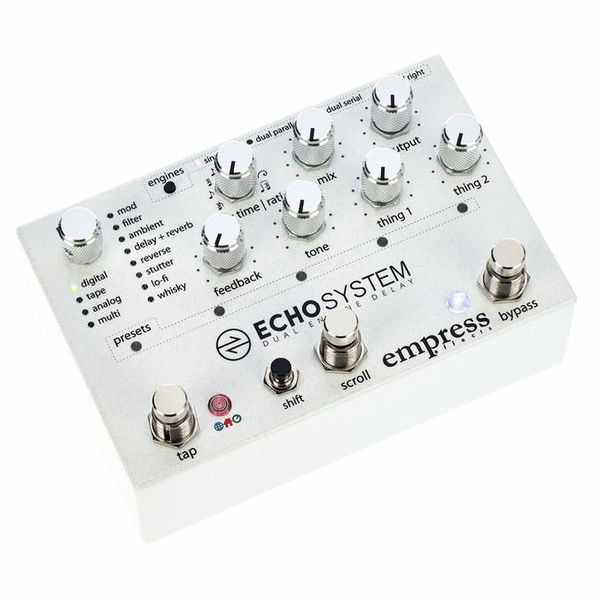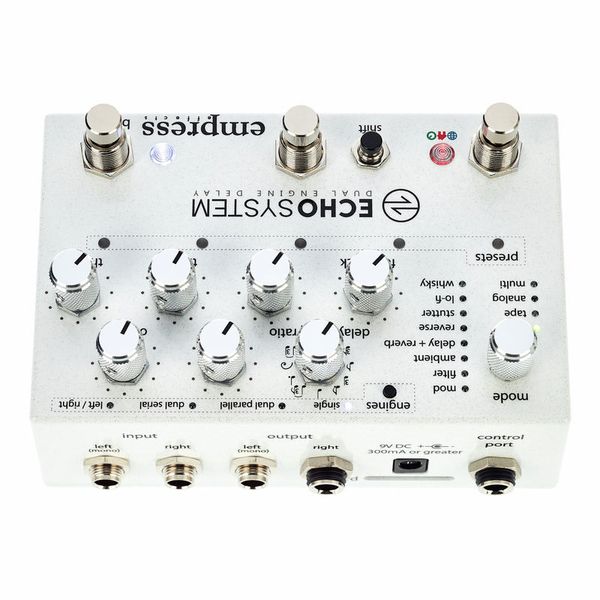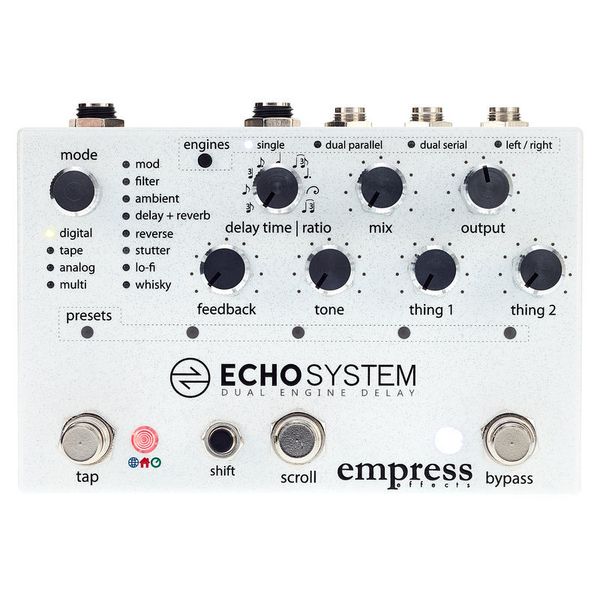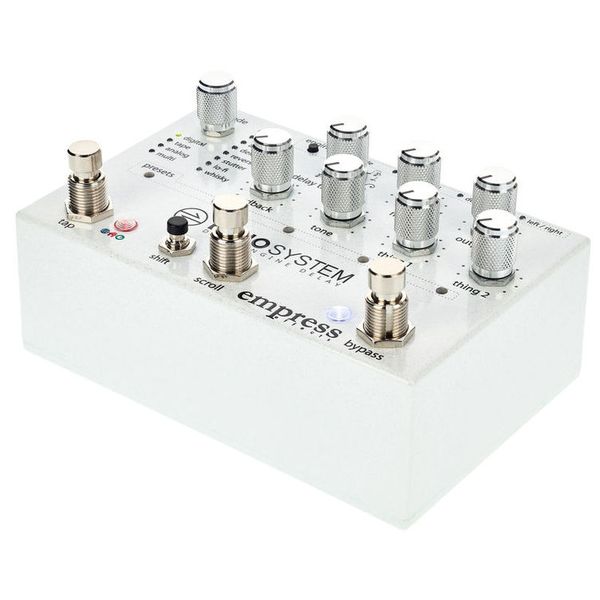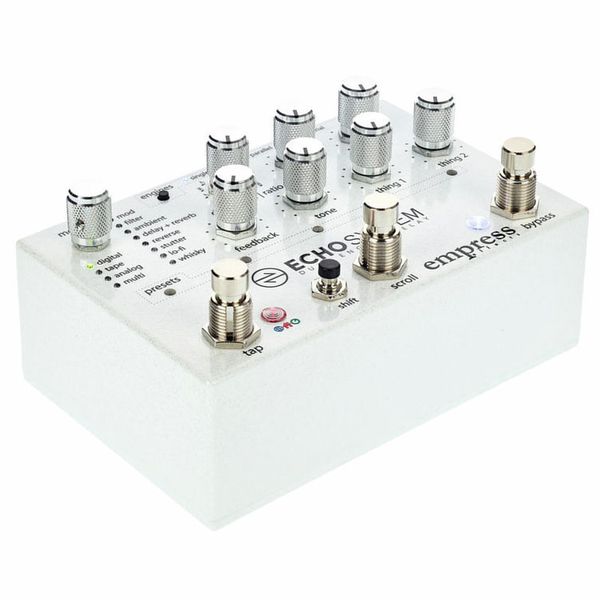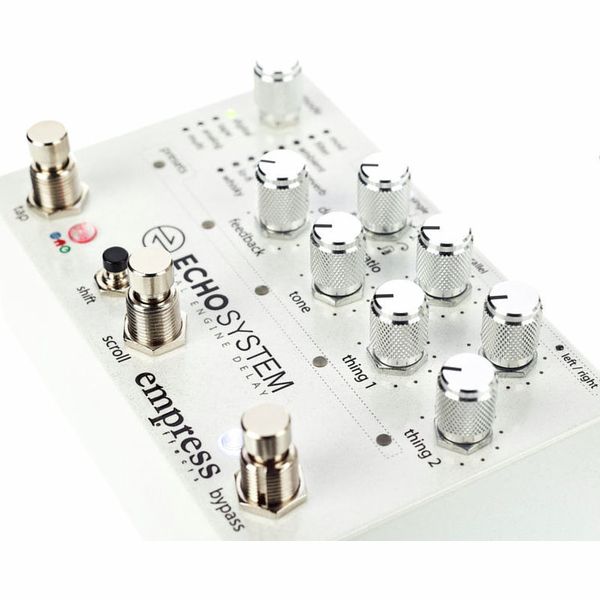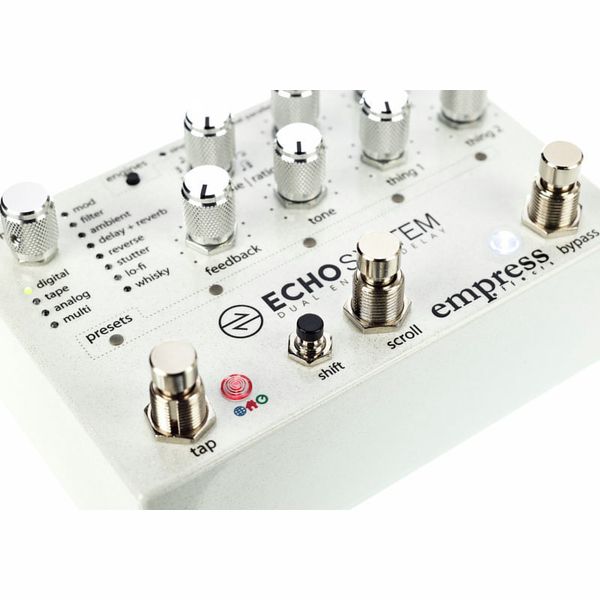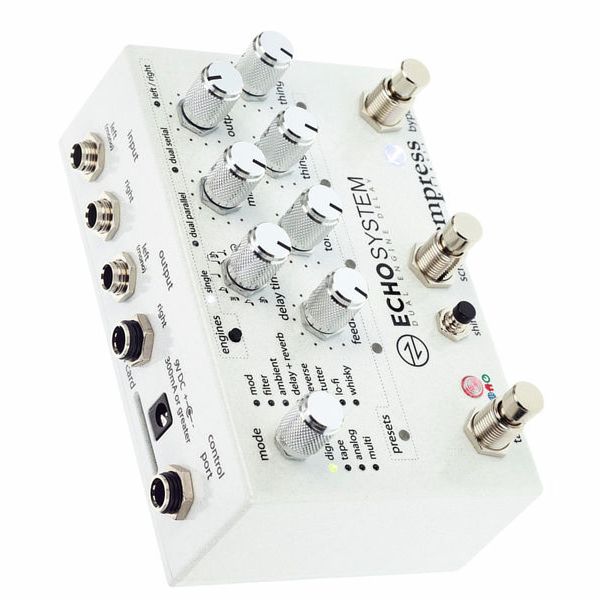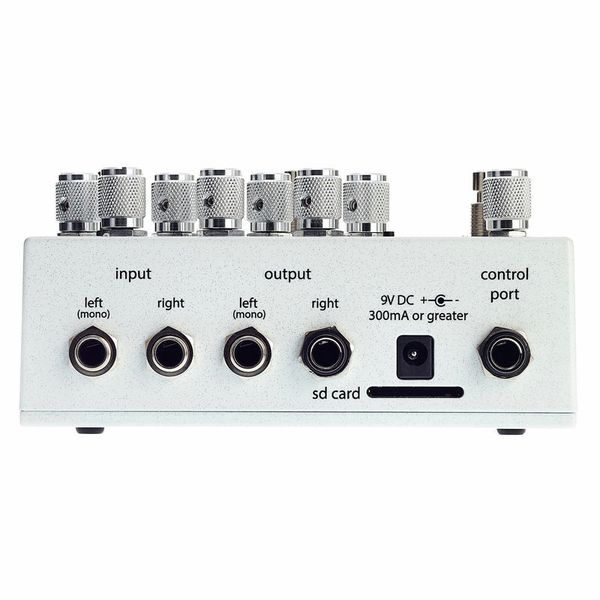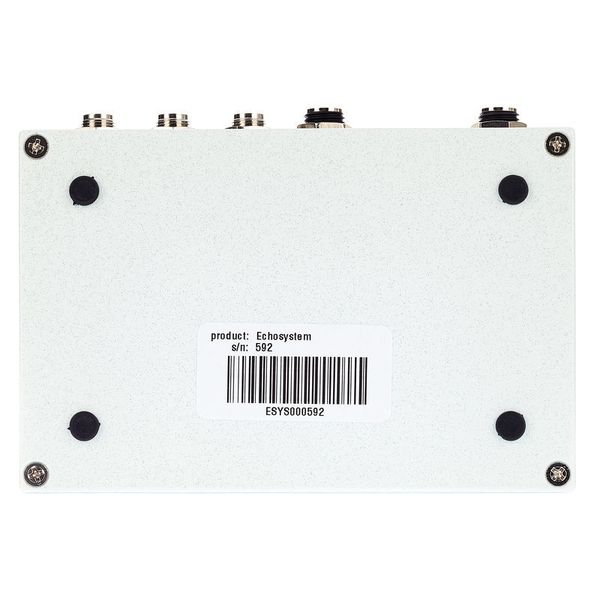I have been on the lookout for another good delay pedal both for "ordinary" guitar/keys/vocal, but also for ambient textures and washes. I already have the Strymon Timeline and had bought (and returned) the Red Panda Tensor for reason of its mono operation, the unpredictability of the results and the inability to store anything that turned out by chance to be worthwhile. All things considered I had a fairly strong case for sticking with the delay unit I already had. But I have overdrive pedals that have 2 gain stages in one pedal and saw the virtues of that arrangement for stacking and expanding the sounds I had available. The Empress Echosystem has a similar arrangement, and this more than doubles the sonic options I have to play around with. I can, given time, dial in something truly original and then I'm able to save it as a patch for instant recall.
I have old solid state echo devices as well and always liked the lo-fi sounds on straightforward guitar parts. The Timeline does a decent version of these, but the Echosystem just sounds a bit more convincing, and in fact seems if anything to be somewhat nicer in the mix than the Timeline. Neither unit really catches the Echoplex type of sounds, but the Echosystem gets closer and, with a bit of tweaking can sound spot on in the mix. Encouraged by video reviews we always listen critically in isolation, where it's easy to criticise the effect, but seldom really think about what's happening in a mix.
One nice discovery was that the Echosystem can, provided you are happy to accept mono operation, use one output and input as an effects loop. This allows us to process an input signal through the first stage of the Echosystem, then feed that signal through a row of other effects before returning the signal to the Echosystem to be processed by the second delay stage. I've not tried this yet, but intend to.
Updates are easy to do, and Empress have added new delay options since the initial version, such as granular and freeze delays. These require a V30 minimum spec SD card (or microSD with adapter) and the ability to download firmware updates and transfer them to the SD card. The Empress website has directions as to how the process works, as well as the updates, and the process is straightforward (if I can do it, anybody can).
Having a V30 memory card and the latest firmware also enables you to use the built-in looper, which uses the memory card for recording (although recordings will wipe any other data on that card, so bear this in mind). This is reasonably simple to use although, with 4 loopers available to me it can get confusing remembering which unit requires what sequence of operations to get the loops going!
Which brings me to the interface. It's intuitive once you get some practice with it, using controller knobs along with colour-coded LEDs to tell you what mode and submode you are in at any moment. A bit like the Timeline, though, it has a learning curve that you have to negotiate so as to get the best from it, and this can be offputting if you prefer your pedals straightforward and with the minimum of rocket science involved.
If you want to turn two or three knobs to zero in on a sound you fancy, this might be serious overkill, but if you're happy to invest a bit of time honing an effect to perfection and diving deeper to get the sound you're hearing in your head, then you're going to fine the Empress Echosystem extremely rewarding.
And if you'd still like to go off the deep end and do something that the Tensor would do, you can still get pretty close to that pedal as well, in stereo, with patch saving options. It's not even slightly cheap as pedals go, but after a while with it you come to realise that it does as much as any other two pedals, in one.

